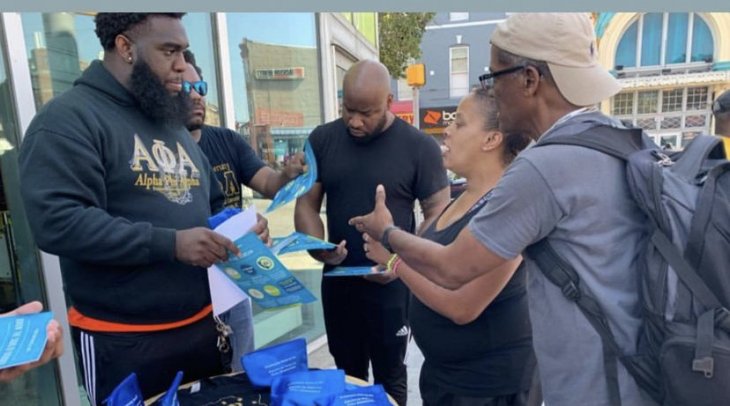Baltimore City’s Response to the Opioid Epidemic

Baltimore City’s Response to the Opioid Epidemic
The Baltimore City Health Department is committed to preventing overdose deaths in Baltimore City. In 2021, Baltimore City saw 1079 drug and alcohol-related intoxication deaths, 973 of which were Fentanyl related. This is nearly triple the number of people who died of homicide during that same year. For more information, please visit the link here.
Baltimore’s aggressive five-pronged strategy for responding to the opioid epidemic has been recognized nationally. When building and implementing our response, the Baltimore City Health Department has prioritized bringing community members to the table, as a community in crisis requires a community solution.
OUR 5 PILLAR STRATEGY:
SAVING LIVES WITH NALOXONE: When administered to an individual experiencing an overdose, this antidote medication can take them from near-death to walking and talking in a matter of minutes. Our priority is saving a life today to make better choices tomorrow.
INCREASING ACCESS TO ON-DEMAND TREATMENT: The Baltimore City Health Department endorses evidence-based medication-assisted treatment (MAT), along with social and wraparound services, to treat the disease of opioid addiction.
FIGHTING STIGMA THROUGH EDUCATION: We know that addiction is a disease. That isn't a slogan or a campaign but a statement rooted in concrete facts. Similarly to heart disease, addiction is preventable and treatable. We aim to fight stigma and misinformation through education.
PREVENTION: Prevention plays a vital role in combating the opioid epidemic. We aim to stop substance misuse before it begins through prevention and early intervention strategies that can reduce the impacts of substance use and mental health disorders. Our team's primary prevention focus is the emerging adult population in Baltimore City through our Kids Off Drugs Program. To learn more about KOD, click here.
DATA: We commit to investigating data and trends that inform health strategies to increase the quality of life for all residents of Baltimore.
Needle Exchange Program
The Health Department Needle Exchange Program, also known as Community Risk Reduction Services, or CRRS, aims to lower incidences of HIV, hepatitis C, and other blood-borne infections that are caused by the use of contaminated needles. The program provides clean syringes and allows the disposal of used syringes to those who are drug-dependent. Needle Exchange also refers clients to drug treatment centers and includes testing for syphilis and HIV. All clients are trained to reverse opioid overdose with naloxone.
Staying Alive Drug Overdose Prevention and Response Program
The program began in 2004 as a public health intervention initiated by former Health Commissioner Dr. Peter Beilenson to reduce the rate of deaths in Baltimore City due to opiate-related overdoses. The program has been implemented through the Syringe Exchange Program (SEP), also known as Community Risk Reduction Services, and offers training with access to naloxone (Narcan) at various treatment centers and other facilities throughout the City of Baltimore. Trainings are also provided at several SEP sites, partner sites, and virtually at the link here. In 2015, the program gained state certification and the ability to train third parties on how to administer Narcan in addition to individuals with substance use disorders.
This program has provided the skills and tools directly attributed to saving more than a thousand lives in Baltimore since 2009. Staying Alive staff train individuals in recognizing the signs and symptoms of an opioid/heroin overdose and responding appropriately to maximize the victim's chance of surviving.
As of December 31, 2016, The Staying Alive program has trained 18,258 individuals in overdose prevention and response.
Baltimore City disproportionately experiences the effects of the opioid epidemic in Maryland. Opioid overdose is a public health crisis, which is now the leading cause of death for Americans under age 50.
Data: Overdose Dashboard
Healthcare On The Spot:
The Healthcare on The SPOT Mobile Unit: The SPOT mobile van team provides low threshold treatment for Substance Use Disorder (SUD), prescribing Buprenorphine and ensuring all patients receive the best treatment options. All patients are seen, regardless of insurance. The team offers confidential services such as:
- STI/HIV testing and treatment
- PrEP and PEP for HIV prevention
- Hepatitis C testing and treatment
- Buprenorphine
- Wound care
- Case management
Call (410) 340-9445 or (410) 241-7240 for van schedule & locations
File(s) available on this page for download requires special software to view. If you do not have that software, you can obtain it from the following source(s):
Portable Document Format (PDF): https://get.adobe.com/reader/
